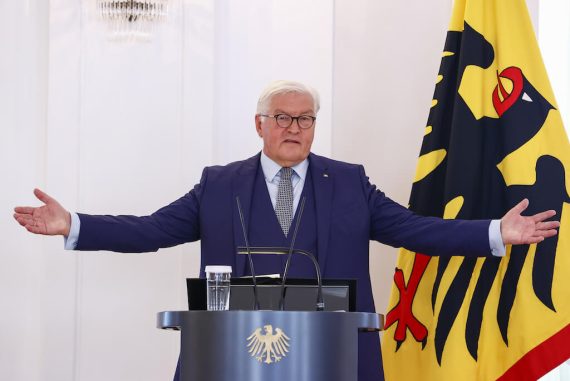According to a survey conducted in autumn 2021 by the German Chamber of Commerce Abroad (AHK), the majority of German companies in Turkey consider the country a favorable investment location. There is a lot of potential for Turkey and Germany to benefit from each other as economic partners, but political developments are hindering the realization of this potential.
Risk factors from the perspective of German companies
Turkey is currently struggling with a steadily increasing inflation rate and a constantly depreciating currency. However, Turkey also boasts a high growth rate and high exports. A total of 7,000 German companies are active in Turkey, 327 of which are members of AHK. Of these members, 77 German companies participated in the AHK survey.
With regard to short-term developments, German companies are rather skeptical about economic developments in Turkey. While 34 percent expect the economy to become worse, 40 percent of the companies surveyed expect the economy to remain unchanged. Only 26 percent of respondents expects economic conditions to improve in the coming months.
In the survey, 62 percent of the participating companies stated that the economic-political situation in Turkey is the biggest business risk. In addition, 48 percent of respondents indicated rising energy and commodity prices in Turkey as another risk factor. It should be added that the skeptical attitude is due to the pandemic-related restrictions in logistics and postponed investments. This is why around half of the respondents indicated that they are planning to adjust their own supply chains.
AHK survey & German companies in Turkey
With regard to the AHK survey, it is clear that German companies will continue to prefer Turkey as an investment location. According to the survey, 70 percent of the companies surveyed assess the economic situation in Turkey as positive. While 57 percent of the companies surveyed expect an improvement of the situation in the coming 12 months, only five percent expect a negative development. Furthermore, 59 percent of the German companies surveyed want to increase their employment in Turkey.
While the willingness of German companies to invest in Turkey was 25 percent in spring of 2021, it is 43 percent now.
While the willingness of German companies to invest in Turkey was 25 percent in spring of 2021, it is 43 percent now, according to the survey. The fact is that German companies are used to economic turbulences in Turkey. In 1990, for example, the inflation rate was 140 percent and yet none of the big German companies withdrew from the market.
In addition to the listed reasons, which are considered the biggest business risks among German companies, German companies benefit from the depreciating Turkish lira as they are active in the export sector, which lowers their costs when converted into euros and dollars.
According to Thilo Pahl, a board member of AHK Turkey, these positive assessments would encourage several German companies to invest further in Turkey. Pahl cites the cooperation between the pharmaceutical company Boehringer Ingelheim and Abdi Ibrahim Pharmaceuticals, the largest Turkish manufacturer in pharmaceuticals which is worth 150 million liras, as an example. The devaluation of the lira enables foreign companies to enter the Turkish market cheaply.
German-Turkish relations have great potential
Investments by German companies show two facts. First, Turkey is an attractive investment location for economically strong, industrialized countries. Secondly, Turkey and Germany have great potential in terms of mutually beneficial bilateral relations. The trade volume between Germany and Turkey amounted to 33.4 billion euros in 2019 before the outbreak of the COVID19 pandemic, which makes Germany Turkey’s most important trading partner.
According to the German Foreign Office, Germany is also one of the most important foreign investors in Turkey, with a volume of 16 billion euros. Germany is Turkey’s third-largest import partner after Russia and China.
Recommended
With regard to the tourism industry, Germany is one of Turkey’s most important partners. In 2019, the number of German tourists that visited Turkey reached 5 million – 11.2 percent of the total number of tourists. This made Germany the second most important country for the Turkish tourism industry after Russia. Alanya is a good example: at present, almost 10,000 Germans who decided to move from Germany to Turkey live in the Turkish Mediterranean city.
Political problems hinder relations
Trade relations at the state level, corporate investment in the country, and the influx of German tourists show that German-Turkish relations have great potential on all three levels: macro, meso, and micro. Due to political obstacles, however, this potential cannot be fully materialized. The best example is the failed investment plans of the German car brand Volkswagen.
Volkswagen wanted to open a factory in Manisa that would create at least 4,000 jobs in the Aegean region. With this investment, the company planned to increase further its market presence in southeastern Europe. Labor in Turkey is much cheaper and more profitable for the German car company compared to other EU countries such as Romania or Bulgaria.

VIDEO: Turkish-owned businesses flourish in Germany | Money Talks
Volkswagen was criticized domestically on several occasions for offering such a large project to Turkish President Recep Tayyip Erdoğan. Eventually, Volkswagen’s investment plans were officially cancelled due to the coronavirus pandemic in July 2020, as the car company did not want to take any risks. But there were also political objections from the employee representatives on the supervisory board, which contributed significantly to the failure of the billion euro project.
This example shows that the political hurdles are currently very high for Turkish-German economic relations to function smoothly, and yet both sides would benefit immensely by a reciprocal relationship with intensive exchange on both economic and cultural levels. The micro level, i.e., the German population, is basically well-disposed towards Turkey. This is shown above all by the figures in the tourism industry.
The meso level, i.e., the German companies, show a high willingness to invest and would even like to become more active in Turkey. However, the main problem is at the macro level: interstate relations between the two countries are far from perfect condition. The new coalition government in Germany also does not look ready to significantly improve relations with Turkey. Therefore, as a result of political obstacles, neither state can act on a rational basis based on maximum profit.





